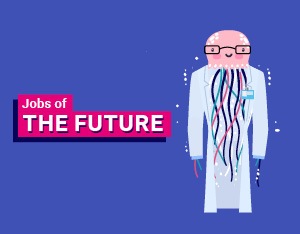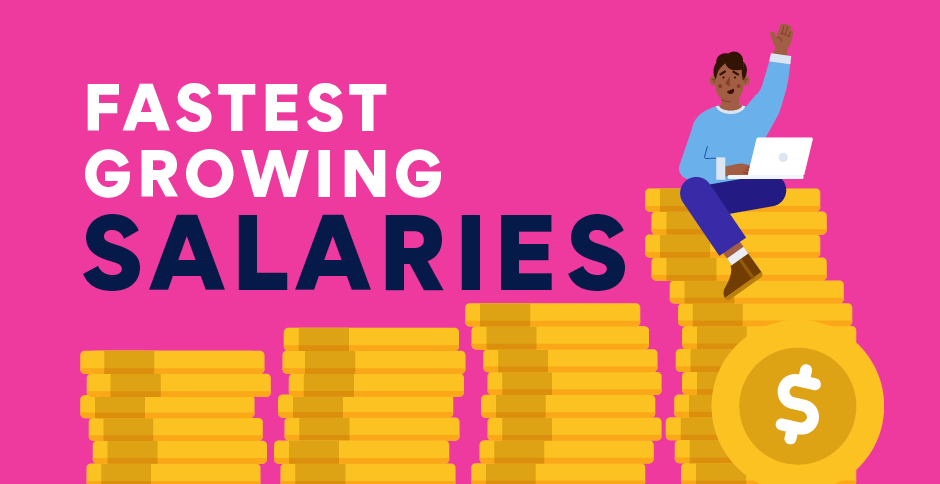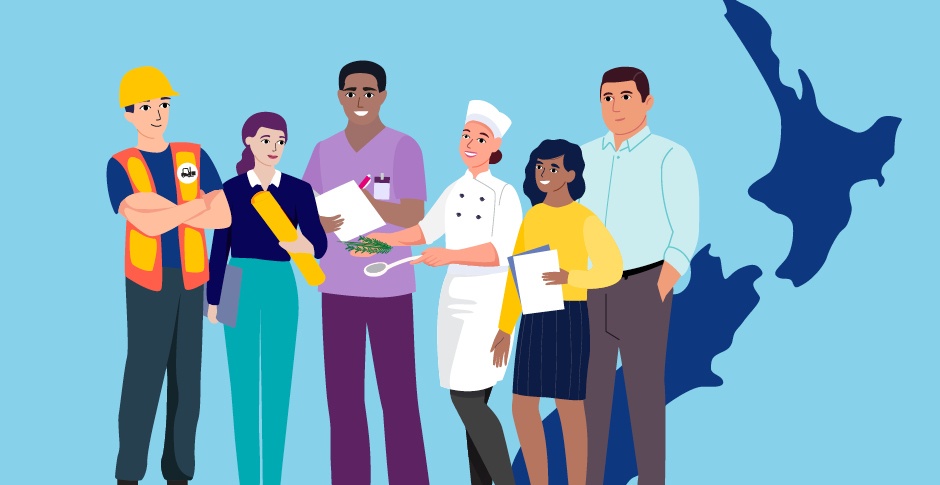The future landscape of our working lives is tipped to be vastly different to what we know now—and it won’t be long before the changes are here.
We asked two futurists to tell us about the ways we’ll work and the jobs that will be most in demand in the years ahead.
Forgoing 9 to 5
Now, and even more so in the future, we’ll take more of a portfolio view of our working lives. Morris Miselowski, business futurist and strategist, says having two or three part-time roles could be the norm. That’s not to say things will take a 9 to 5 route, or even a Monday to Friday routine. Work will instead be integrated into the bigger picture of our lifestyle. “We may have a main job that’s more office bound, then get out into people’s gardens, or jump into Uber duties the next day, for example,” he says.
The other key difference is technology will continue to take over routine jobs that can be programmed and performed by machines. But this is far from scary—Miselowski says it means the job market will simply evolve, not be replaced by machines.
The service industry will grow
While self-checkouts and online shopping may suggest otherwise, Miselowski predicts service jobs will be a peak growth industry.
“People increasingly value experiences over spending on material goods, and while some services can be automated, experiences ultimately come down to human interaction—a five-star meal is less memorable served on a self-driving trolley, after all,” he says.
Our ageing population is very different to the last generation of retirees. Miselowski says as this group makes up a large portion of the population, they’ll be responsible for a lot of changes in the job market.
“Baby Boomers are less concerned than previous generations with leaving a legacy behind and paying a close eye to their savings,” he says. “Instead, they’re into travelling, going for meals, and staying in their own homes longer—all of which create jobs.”
And rather than retirement homes, in-home care will become the preferred option, making way for a booming market in aged care concierges. This will include domestic duties through to in-home physiotherapy and providing companionship Miselowski explains.
Farming and food provision
While less than a decade ago farming degrees had single-digit enrolments, Miselowski says tech advances have taken the physical strain out of many common farming duties and led to an increase in study in this area.
There are also emerging fields, such as AI, robotics and CRISPR technology (genetically modified growing methods), that will allow people to manipulate foods to adapt to our conditions, he says. Jellyfish and insect farming are two more food-based careers of the future—both foods could join the staple diet as they’re more sustainable than other products.
Adam Long, a futurist and ‘The Ethical CEO’, has seen these foods served up. “I recently attended a dinner, which served predicted ‘future food’ from the year 2045,” he says. “On the menu were crispy fried crickets, jellyfish sashimi, wallaby tail, seaweed jelly.”
You’ll need to embrace the digital age to stay ahead
Careers that combine IT skills with another skill set, for example a doctor/data scientist or lawyer/UX designer will be in great demand in the future, Long says.
“Learning additional IT skills and integrating them into their existing job will make people more employable than ever before,” he says. “A doctor and a data scientist working as a team is naturally less efficient and creative than a doctor who is also a data scientist, for example.”
The good news is, it won’t need to be complicated. Long says short courses are the way of the future and online education means you can train on the side and keep up with the latest technologies throughout your career.
Similarly, jobs involving tech will be in demand—for example, becoming an AI empathy coach or drone swarm manager, 3D printing organs and body parts, or working towards alternative energy sources, Long says.
So, if you’re wondering how to take your career to the next level in the future—be prepared to upskill throughout your career with short courses, find ways to turn a hobby into a side hustle, embrace your interpersonal skills or explore a burgeoning industry. Why not start now?
Related content
- 5 transferable skills that have stood the test of time
- 6 steps to turn your passion into your paycheque
- How to know when it’s time for a change



